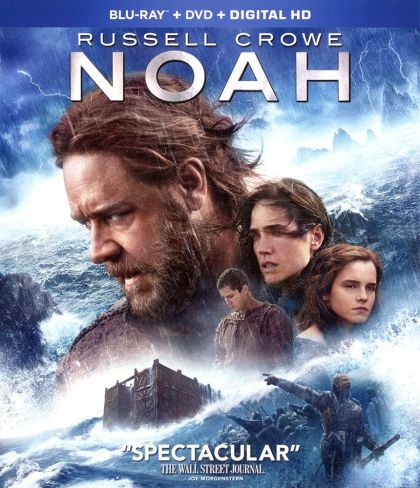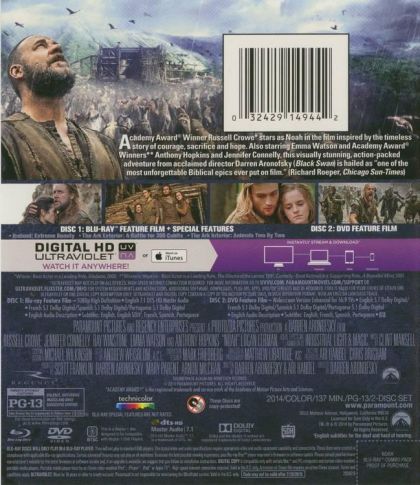Noah

A retelling of the biblical story of Noah.
A man is chosen by his world's creator to undertake a momentous mission before an apocalyptic flood cleanses the world.
- Written by Anonymous
SYNOPSIS
The film starts by briefly retelling the beginning of the book of Genesis. In the beginning, there was nothing. Then God created the world as well as man and woman. After Adam and Eve created sin, they had three sons - Cain, Abel, and Seth. After Cain killed Abel, he took refuge under the eyes of fallen angels called the Watchers, giant multi-armed stone golems. The Watchers helped Cain and his descendants build civilization, but the wickedness of man spread throughout the world. Only the descendants of Seth would be left to restore mankind.
The story begins with Noah shown as a young boy (Dakota Goyo), standing on a hill with his father Lamech (Marton Csokas). Lamech is about to give him a precious heirloom - the skin of the original serpent in Eden, which has been passed down for many generations. Suddenly, a large crowd approaches, led by a young king named Tubal-Cain (Finn Wittrock), who wants to make that hill into a mine. Seeing Lamech, Tubal-Cain kills him and takes the serpent's skin, while Noah runs.
Many years pass. The adult Noah (now played by Russell Crowe) is living with his wife Naameh (Jennifer Connelly) and his three sons, Shem (Gavin Casalegno), Ham (Nolan Gross), and Japheth, when he sees a small miracle: a drop of water hits the ground and a flower grows instantly. That night he has a dream where he sees the mountain his grandfather Methuselah lives on, and water covering the earth. He realizes that the Creator is trying to send him a message. He and his family journey to see Methuselah and seek guidance. Along the way, they find a group of recently killed humans, and among them, a girl that is wounded but still alive, named Ila (Skylar Burke), and they adopt her. Some of Tubal-Cain's men find then chase Noah and his family, but cease pursuit as they are afraid to enter a dark region inhabited by Watchers, fallen angels who on Earth took the form of stone golem-like creatures.
It is recounted that the Watchers are friends of Methuselah (Anthony Hopkins) because he had once defended and saved them. They came to earth to help the humans, but after learning from them, the humans tried to enslave and kill them. Attempting to flee, Methuselah aided their escape by fighting waves of human soldiers with a burning sword wielding tremendous power.
Noah speaks with Methuselah and receives a seed passed down from the Garden of Eden. He plants the seed on a plain, and a great spring erupts from the earth - extending out as a great network of streams in all directions - and an entire forest grows around its source within moments. This miracle convinces the Watchers that Noah is chosen by the creator. Noah asks for their aid in the building of an ark, and they agree to help in the undertaking.
Roughly eight years pass. As the Ark nears completion, animals are seen following the streams from across the land to the source of the great spring and begin arriving to the ark. They enter and settle into the ark and are put into a deep sleep by incense that Noah and his family prepare and dispense throughout the mighty vessel. Meanwhile, the surrounding lands have been running short on food sources and the humans, led by Tubal-Cain, are becoming exceedingly ravenous for flesh. A horde of about 200 men, led by self-declared king Tubal-Cain, approaches the Ark and threatens to storm it, but the Watchers force him to turn back.
Noah realizes that his three sons need wives, and that Ila cannot serve because she is barren. He disguises himself and goes into the human camp in order to find three women, and take them into the ark. At the human camp, he sees humans being traded and apparently slaughtered for food, living in intensely feral, crowded and filthily conditions. Stunned by the wickedness of Tubal-Cain's followers, Noah gives up the effort, becoming convinced that the Creator wishes for the entire human race to come to an end. Later in the forest near the camp, Methuselah blesses Ila and her barrenness is cured.
Shortly before the rains start to pour, Ham decides to go to the camp himself and find a woman. He falls into a pit filled with the dead and encounters a frightened young girl named Na'el. She is willing to go with him, but as they run back to the ark, her foot gets caught in an animal trap. Noah comes to help but sees the human horde coming to raid the ark, so he forces Ham to leave her behind and save himself. Seconds later, the human horde reaches her and tramples her to death as it passes. All of Noah's family boards the ark except Methuselah, who chooses to die in the flood. As the ark is launched, all the Watchers sacrifice themselves fighting the endless human waves. As they die, they return to their original forms and are spirited skyward as their Creator forgives them. As the flood waters pour toward the ark and his remaining soldiers drown, a wounded Tubal-Cain seizes the opportunity to survive and crawls up a pathway to a high point of the ark, hacking his way inside the vessel where he is eventually found by Ham. The wicked old king plays on Ham's anger toward Noah for allowing Na'el to die. Outside, the family listens to the dying screams of those outside the ark. His family implores him to let some of them in, as they "have room," only for a weary Noah to reply that there is no room for them - that their fate was sealed.
Ila wakes up, feeling ill, and goes to Naameh who deduces that she is with child. At this exact moment, the rains stop completely. Ila says it is because the Creator smiles upon the unborn child. Naameh, Shem, and Ila inform Noah of Ila's good fortune, but the patriarch rationalizes that the Creator's wish to destroy humanity also extends to his own family, who he initially thought would simply die of old age once the flood waters recede. He tells the family that if the child is a boy then he will replace their youngest as the last man, but if a girl is born, he will kill the child upon her birth, much to Ila's horror - believing this to be a test for him by the Creator of his faith and resolve to carry out the undertaking to completion. Not truly willing to do such a thing so much as feeling it is a duty to the Creator, a tearful Noah climbs to the top of the ark and asks for the Creator's counsel. Finding no answer, Noah resolves to do as he told his family. Meanwhile, Tubal-Cain finds aid from the naive Ham (eventually acquiring the boy's help in a plot to kill Noah) and Naameh makes one final, unsuccessful attempt to dissuade her husband.
Many months pass. Ila, now near the end of her pregnancy, and Shem build a small raft to escape Noah's plot to kill their child. Noah discovers their plan and burns the raft. The shock causes Ila to go into labor. With Naameh's assistance, the terrified young girl gives birth to twin girls. Hearing the babes' cries, Noah pursues Ila to the top of the vessel. As Ila pleads for a moment to sing to the crying infants to pacify them before they die, Noah hears the song he once sang to Ila when young and frightened - then looks upon the girls and decides not to carry out the unspeakable task.
Tubal-Cain has seemingly manipulated Ham into believing killing Noah is just and will be for the sake of Ila and Shem's offspring as well as vengeance for Na'el, so Ham lures Noah to the tail end of the ark on the pretense that the animals have awoken and have begun cannibalizing each other. As Noah and Tubal-Cain engage in a brutal fight, the Ark hits a mountain and Tubal-Cain is thrown through the shattered wall of the vessel, being greatly injured. As the king rises and attempts to finish off a similarly-injured Noah, a repentant Ham stabs Tubal-Cain in the ribcage, killing him.
As the rest of the family begins making a new life for themselves on newly discovered land as the flood recedes, Ham decides it is time for him to leave, still angry at Noah for what happened to Na'el. Noah, believing he'd failed God, imbibes of wine and becomes a drunkard, living in a cave separate from his family. One day Ham finds his father lying naked and unconscious. He walks away, leaving Shem and Japheth to cover their father with a blanket. Ila confronts Noah on allowing his grandchildren to survive, telling him that perhaps it was the intent of the Creator to give him the choice of whether mankind should be saved or not. When she asks why he didn't kill the babies, Noah reveals he could feel nothing but love for the babies upon seeing them - allowing him to see the goodness in mankind. Noah decides to rejoin his family. He and Naameh reconcile in her garden and she forgives him.
Later, the family stands atop a cliff face and Noah blesses them all as the beginning of a new human race. They watch as the Creator sends a rainbow from the sky, covering all of the Earth, signaling his promise to never destroy mankind again.
Cast View all

|
Russell Crowe | Noah |

|
Jennifer Connelly | Naameh |

|
Ray Winstone | Tubal-cain |

|
Anthony Hopkins | Methuselah |

|
Emma Watson | Ila |

|
Logan Lerman | Ham |

|
Douglas Booth | Shem |

|
Nick Nolte | Samyaza |
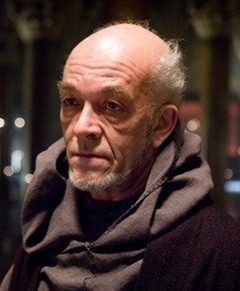
|
Mark Margolis | Magog |

|
Kevin Durand | Rameel |

|
Leo McHugh Carroll | Japheth |
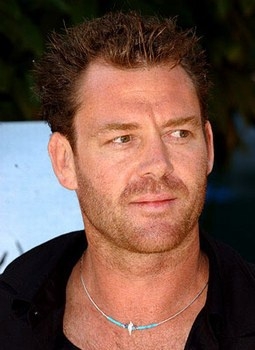
|
Marton Csokas | Lamech |

|
Finn Wittrock | Young Tubal-cain |

|
Madison Davenport | Na'el |

|
Gavin Casalegno | Young Shem |

|
Nolan Gross | Young Ham |

|
Skylar Burke | Young Ila |

|
Dakota Goyo | Young Noah |

|
Ariane Rinehart | Eve |

|
Adam Griffith | Adam |

|
Sophie Nyweide | Younger Sister |

|
Don Harvey | Mean Uncle |

|
Sami Gayle | Refugee Daughter |
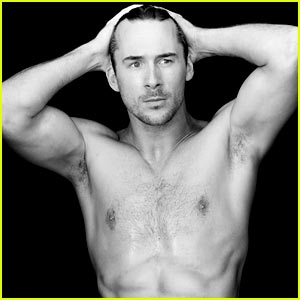
|
Barry Sloane | Poacher Leader |

|
Ezra Barnes | Refugee Father |
Crew
| Director | Darren Aronofsky |

|
| Writer | Darren Aronofsky, Ari Handel | |
| Producer | Darren Aronofsky, Cale Boyter, Chris Brigham, Scott Franklin, Ari Handel, Amy Herman, Rafnar Hermannsson, Arnon Milchan, Mary Parent | |
| Musician | Clint Mansell | |
| Photography | Matthew Libatique | |
Edition details
| Edition | Blu-ray DVD Digital HD |
|---|---|
| Packaging | HD Case |
| Nr Discs | 2 |
| Screen Ratios | Widescreen (1.85:1) |
| Audio Tracks | Dolby Digital 5.1 [English] Dolby Digital 5.1 [French] Dolby Digital 5.1 [Portuguese] Dolby Digital 5.1 [Spanish] DTS-HD Master Audio 5.1 [English] DTS-HD Master Audio 7.1 [English] |
| Subtitles | English | French | Portuguese | Spanish |
| Distributor | Paramount Home Entertainment |
| Layers | Single side, Dual layer |
| Edition Release Date | Jul 29, 2014 |
| Regions | Region A |
Personal
| Owner | Kerry & Dawn |
|---|---|
| Location | Movies-01 |
| Storage Device | TD 26 |
| Purchased | On Sep 05, 2014 |
| Watched | Jul 04, 2019 |
| Index | 689 |
| Added Date | May 17, 2015 05:44:43 |
| Modified Date | Apr 17, 2024 00:47:57 |
Notes
Christians may hate it, but as a Jew, I loved it!
By Rabbi Yonassan Gershom VINE VOICE on August 11, 2014
Format: DVD Verified Purchase
WARNING: CONTAINS SPOILERS. On the other hand, reading this before viewing the film just might open your eyes to some of the lesser-known Jewish themes it contains. Never has a movie so clearly illustrated the vast difference between how Christians and Jews read the Bible.
Yes, this is basically a Jewish movie, directed by a Jew (Darren Aronofsky) and written by him and his Jewish co-writer, Ari Handel. One of the early screenings was to a group of rabbis from various Jewish denominations, who gave it a thumbs up. In fact, I believe this is the first-ever major movie with a biblical theme that presents a Jewish POV on the story. That alone deserves a lot of kudos to a director who did NOT pander to the dominant culture in America.
So no, it does not stick to the common Christian understanding of the biblical text -- which is rather short and sketchy anyway, with no real character development. However, the Bible is only a small percentage of the sacred writings that Jews have. Aronofsky also consulted the Talmud, Midrash, Zohar, Book of Enoch, and other extra-biblical sources. Then you have the flood traditions in the Gilgamesh Epic, the story of Atlantis, the Hopi Indians, etc., plus archaological and historical data on what such an early culture might look like. Remember your Bible: "Tubal-Cain, who forged all instruments of copper and iron" (Genesis 4:22) which would place this story in the late Bronze or early Iron Age. People back then did not dress in biblical robes.
So, in his quest to make this more than mere iconography (of which we have already had enough Noah versions, both live action and animated), Aronofsky incorporated a number of themes and details that are not "in the Bible," including:
The Watchers: These are the Nephilim (neh-FEE-leem) mentioned in Genesis 6:4. Granted, the CGI version in the film is a bit hokey, but the idea of divine beings descending to Earth and becoming encased in rock is not alien to Jewish thought. They are also mentioned in the Book of Enoch, and in some gnostic texts. In an interview after the film came out, Aronofsky regretted he did not use the term "Nephilim" instead of "Watchers" -- he had thought it would be too obscure for the general public. Had he called them Nephilim, there might have been a less negative reaction.
Calling God "Creator": The Christian objections to this as "pagan" in some reviews is, in my opinion, ludicrous. OF COURSE the Creator is God! Even today in Jewish prayers and blessings we refer to God as "Boray" --the One Who Creates, as in "Boray pri ha-gafen," "Who creates the fruit of the vine," said over a cup of wine (or grape juice) every Sabbath. And remember: This story is only ten generations from Adam and Eve. So they would not know the "God of Abraham, Isaac, and Jacob" nor did they have the "I Am That I Am" name revealed to Moses, nor even the more generic "Lord." All that is in the future. They would only know God as the One who created the world.
The snakeskin: The implication in the movie is that the snakeskin is a family heirloom brought from Eden. The way it is wrapped around the arm is like a forerunner of tefillin, the leather straps still used by Jews today during morning prayers. So the scene with Lamech and little Noah is a sort of Bar Mitzvah, and indeed, Lamech does tell him that he is now a man -- as in the "today I am a man" recited at countless Bar Mitzvah ceremonies even today. Entering manhood is a theme that runs through the movie. Tubal-Cain thinks it means to become a warrior and learn to kill. Noah's line sees it differently -- a difference between gentiles and Jews even today, where knowledge is held above toughness.
Not Satanic: Christians interpret the Snake as an incarnation of Satan, but the text does not say that, it simply says he was "the shrewdest of all the wild beasts that God had created." So it is wrong to see the snakeskin scenes as "satanic" as some negative reviewers did. The snake was not cursed until AFTER he tricked Adam and Eve -- and yes, there is a tradition that he shed his beautiful skin at that time (as shown in the film). And he also lost his legs; the Bible itself curses him to crawl on his belly. So the Snake before the Fall was not the same creature as after the Fall. It is not unreasonable to think that the skin of the snake was something sacred, perhaps a reminder NOT to sin.
Methuselah's "magic" sword: Yes, such a tradition exists -- it is cited in "Legends of the Jews" by Louis Ginsberg (a classic).
Adam and Eve scene: There is much debate about what the "Garments of skin" were that God made after casting Adam and Eve out of the Garden. Usually we picture them as animal skins. Mystical traditions say they were physical bodies, and that Adam and Eve had been spiritual beings of light in the Garden -- an idea that is included in the film (and also a clever way to show them "naked" in a PG-13 movie.) There is also a tradition that the "garments of skin" God made after the flood were shed snakeskins, since Eden was vegetarian and animals were not yet being slaughtered. Which brings us to:
The sin of eating meat. Yes, folks, Eden was vegetarian (Genesis 3:20), and permission to eat meat was not given until AFTER the Flood at the Noah Covenant (Genesis 9.) That's classic Jewish theology. So this isn't some "animal rights" thing made up for the movie. It has a basis in tradition, and is also a graphic way to illustrate how humankind fell out of harmony with the will of God. In one scene it is hinted that Tubal-Cain's people are cannibals -- a detail also in accord with Jewish tradition. Cannibalism continued to exist well into modern times.
Seeds from Eden: There are Jewish traditions about plants brought from Eden that miraculously grew overnight. Noah's line is credited with developing agriculture. The bible itself says he was the first to plant a vineyard (Genesis 9:20).
The Ark: Usually it is pictured as a regular ship of some sort, but in Jewish commentaries it is indeed a big box without rudder or sails. The primitiveness of the construction is also accurate for the time period, with rough-hewn timbers and black pitch all over. And yes, the Midrash does say the people tried to attack Noah and seize the Ark -- which makes sense. People would probably do the same thing with survivalist bunkers today if there was a major catastrophe.
There are more such details, but I want to move on to the most controversial part: Noah himself. To begin with, Jewish tradition does not hold him to have been a perfect saint. Genesis 6:9 says he was "a righteous man" and "blameless in his age." Jews hold that he was righteous in comparison to the rest of his generation -- which, as the movie shows, were very wicked -- but that if he had lived in the time of Abraham or Moses, he would have been a nobody. He may have been the best that God could find in those times, but he was not perfect. One of his imperfections was that he did not try to save others -- which the movie shows. Even today there is a Jewish expression "to build an Ark for yourself" which implies selfishness and not caring about the rest of the community.
Noah's "nervous breakdown": This part is, as far as I know, purely Aronofsky's imagination, but it makes sense if you see it in terms of survivor guilt. People who survive a great upheaval are often convinced that they should not have survived, and feel guilty for doing so. Two events in Jewish history may have provided the model for this part of the script: The Holocaust, where, in many cases, only one or two people from a whole family line survived, and yes, there were suicides; and Masada, where Jews did indeed commit mass suicide at the end of the Bar Kochba uprising against the Romans. Survivor guilt is also common among soldiers returning from battle --and could account for the high number of suicides among veterans today. So it is perfectly plausible that Noah, after going through the Flood, was filled with such guilt and self-loathing that he did not think any humans should be left alive. The scene where he almost kills his baby granddaughter is horrifying to 21st-century eyes but remember, child sacrifice was common in the Iron Age. So it is not unreasonable that the idea would occur to a Noah who, as we said, was not perfect and had just been emotionally traumatized.
Getting drunk: The Bible does indeed say Noah got drunk after the Flood (Genesis 11:20-21.) This movie gives a plausible reason WHY he got drunk. Again, it is not uncommon for survivors of war or disasters to sink into chemical dependency. And this is why the rainbow does not appear in the movie until AFTER Noah is able to reconcile himself with what he saw as a failure. Ila and his wife convince him that God did NOT want all humans to die, that Noah and his family were saved for humanity to start over. Then we see shots of baby animals -- signs of rebirth -- and finally the rainbow appears.
All in all, I think this is a movie that will continue to spark discussion and controversy -- and that is a good thing. As the old saying goes, where you have two Jews, you will find three opinions. So let the debates continue!


 English
English  Nederlands
Nederlands  Deutsch
Deutsch  Français
Français  Español
Español  Magyar
Magyar  српски
српски  Dansk
Dansk  Italiano
Italiano  Svenska
Svenska  Slovenčina
Slovenčina  Português
Português 
